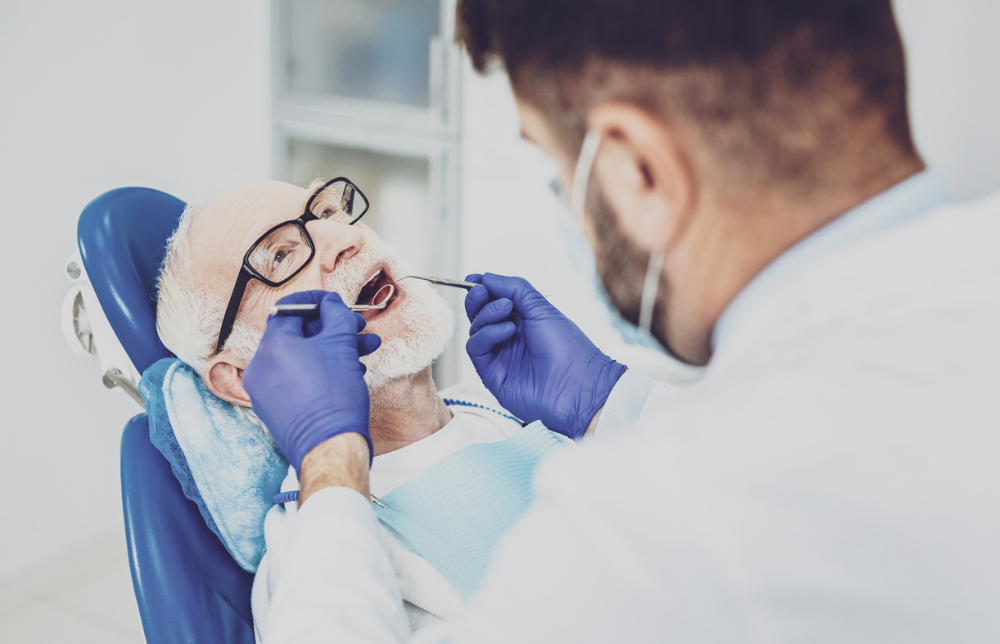
Small Movements in the Mouth Can Add Up: How to Protect Yourself From Shifting Teeth
January 20, 2021
Though you can’t see it happening, your teeth are always on the move. Teeth continue to shift throughout our lives. This is because of several factors including the changing shape of the jaw over time, pressures from eating and talking, and potential dental health issues like gum disease. Even if you’ve had braces or still wear a retainer, it’s important to work with your dentist to minimize the shifting of your teeth and to keep watch for any significant movement.
One common reason for teeth to shift is if you’ve had a tooth extracted. The surrounding teeth may start to move to try to fill the space. While many people get along fine for the rest of their lives after having their wisdom teeth or other rear molars pulled, losing an incisor ( the four front teeth each on the top and bottom of the mouth) or canine tooth (the teeth next to the incisors that look like fangs) poses a greater risk. The teeth on either side may shift toward each other in the new space left by the extraction. The best way to solve this problem is to replace missing teeth with a bridge or dental implants to replace the missing tooth or teeth and fill the space.
Another common reason for teeth shifting is gum disease, which weakens the gums that help keep teeth in place. Loose or shifting teeth are one of many serious complications of gum disease. If gum disease is a concern, good dental hygiene may require more frequent dentist appointments and procedures like root planing or teeth scaling.
If your dentist observes significant shifting of your teeth, they might recommend you be fitted for a retainer. Wearing a retainer consistently is one of the most effective ways to minimize shifting. Though retainers can be a little uncomfortable at first, most people get used to them very quickly and dentists agree that they are one of the most effective and least invasive ways to minimize shifting.
The simplest but most important strategy to maintaining good dental health is being attentive to good oral hygiene. That means brushing at least twice a day, flossing every day, reducing or avoiding choices that can harm your dental health, such as smoking, and being sure to get regular dental checkups so any changes in your bite and smile can be addressed earlier rather than later.
Teeth continue to shift throughout your life and can lead to imperceptible or significant changes. These changes can affect our smile or require surgery. INRTA and AMBA can help you keep your mouth – and your smile – healthy with a dental plan that covers everything from routine check-ups to implants (which many other plans don’t cover!), all at a great low cost group rate.
RECENT POSTS
An Ambulance Trip Is Stressful: With MASA, the Cost Doesn’t Have to Be
People who require an emergency ambulance trip frequently ask the same question upon receiving the bill: “Why was the
Read More
AMBA’s Essential Insights in Dental Health: Understanding Cavities
Have you ever experienced pain or noticed persistent sensitivity in your teeth? You might have a cavity. Cavities are common,
Read More
Keep “Looking” Your Best: The Unique Eye Health Challenges for Women Over 55
March is Women’s History Month, a time to celebrate women's contributions to American history and society. It’s
Read More

Leaving Your Home To A Loved One
If you’re like many people, your home represents more than just financial value. As the saying goes, "Home is where the
Read More

